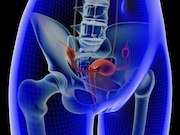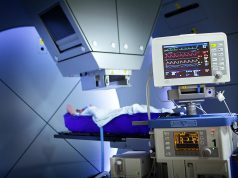No increased risk of corpus uteri, invasive breast cancer for women undergoing assisted reproduction
TUESDAY, July 17, 2018 (HealthDay News) — For women undergoing assisted reproduction, there is no increased risk of corpus uteri or invasive breast cancer, but there is an increased risk of ovarian cancer and in situ breast cancer, according to a study published online July 11 in The BMJ.
Carrie L. Williams, from the University College London Great Ormond Street Institute of Child Health, and colleagues examined the risks of ovarian, breast, and corpus uteri cancer in 255,786 women who underwent assisted reproduction, with 2,257,789 person-years of follow-up.
The researchers found that there was no significantly increased risk of corpus uteri cancer (standardized incidence ratio [SIR], 1.12; 95 percent confidence interval [CI], 0.95 to 1.3). The risks of breast cancer overall or invasive breast cancer were not increased significantly (SIRs, 0.98 [95 percent CI, 0.94 to 1.01] and 0.96 [95 percent CI, 0.92 to 1], respectively). There was an increased risk of in situ breast cancer (SIR, 1.15; 95 percent CI, 1.02 to 1.29), which was correlated with an increasing number of treatment cycles. An increased risk of ovarian cancer was observed (SIR, 1.39; 95 percent CI, 1.26 to 1.53); the increased risk was seen for invasive (SIR, 1.4; 95 percent CI, 1.24 to 1.58) and borderline cases (SIR, 1.36; 95 percent CI, 1.15 to 1.6). Only women with endometriosis, low parity, or both had increased risks of ovarian tumors.
“Ovarian tumor risks could be due to patient characteristics, rather than assisted reproduction itself,” the authors write.
One author disclosed financial ties to Abcodia and receives royalties as co-inventor of the ROCA ovarian cancer algorithm.
Copyright © 2018 HealthDay. All rights reserved.








